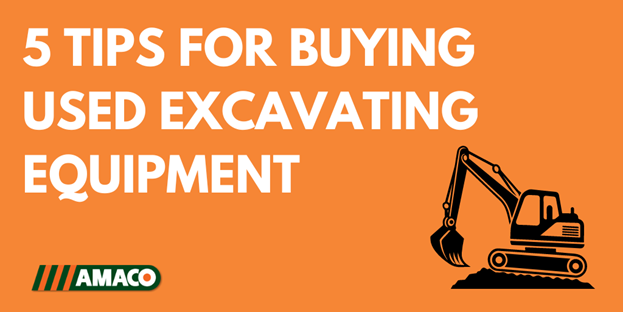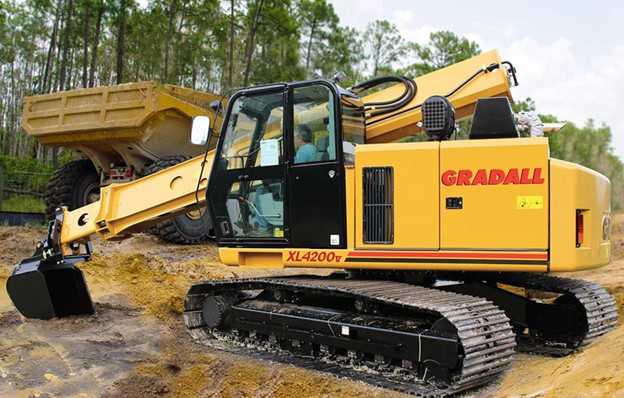
hen buying used excavating equipment, it’s crucial to focus on the unique characteristics and wear points that could directly impact machine performance. From hydraulic systems to undercarriage components, evaluating the machine’s condition with a targeted approach can ensure your investment is reliable, efficient, and capable of meeting project demands. Whether you’re a sole contractor or part of a larger team, these five tips will help you make an informed purchase that delivers long-term value.
1. Focus on Hydraulic Systems and Attachments
Hydraulic systems are the lifeblood of excavating equipment, powering critical functions of digging, lifting, and rotating. Before committing to a purchase, carefully inspect hydraulic hoses, cylinders, and pumps for signs of leaks, cracks, or corrosion. Even minor hydraulic issues can lead to costly repairs or operational downtime. Listen to the hydraulic system – can you identify already that it is under stress?
Additionally, examine any attachments and the pin attachments (buckets, thumbs, or grapples) that come with the equipment. Are they loose or in good condition? Are they the right fit for the types of projects you plan to undertake? The condition and versatility of attachments can significantly impact an excavator’s performance.
2. Inspect Undercarriage Components for Wear
The undercarriage of excavators makes constant contact with tough terrain, making it a prime area for wear and tear. Critical components such as tracks, pins, rollers, idlers, and sprockets must be closely examined for damage or uneven wear patterns. These parts are expensive to replace, so identifying any issues before purchase can prevent you from inheriting costly repairs. A well-maintained undercarriage not only ensures smoother operation but also extends the machine’s lifespan, making it a vital part of your inspection.
3. Assess the Slew Ring and Boom for Structural Integrity
The ability of an excavator to rotate smoothly is a key factor in its efficiency, and this is controlled by the slew ring. Test the machine’s slewing function for any signs of excess movement, slop, grinding noises, stiffness , or drift. Any problems with the slew ring can lead to significant repair costs and operational downtime. Similarly, inspect the boom and arm, which handle the heavy lifting. Look for cracks, dents, or signs of fatigue or previous repairs in the metal. These components are subject to tremendous stress during use, so their structural integrity is essential for safe and efficient operation.
4. Ensure Operator Comfort and Control Sensitivity
Excavators are precision machines, and smooth control is essential for excavation tasks. During a test run, evaluate the machine’s control sensitivity to ensure it responds accurately to inputs. Additionally, operator comfort plays a huge role in productivity, especially during long workdays. Check the condition of the cabin, seat, and controls. Is the seat adjustable and in good condition? Are the controls intuitive and responsive? These factors contribute to reduced operator fatigue and improved efficiency on the job site. Overall appearance is important – has the machine been cared for up to this point?
5. Confirm Compatibility with Job Site Requirements
One of the most important factors to consider when purchasing used excavating equipment is its suitability for your specific projects. Excavators come in a variety of sizes—ranging from mini excavators designed for tight urban environments to large machines suited for heavy earthmoving tasks. Ensure that the machine you’re considering aligns with the space, terrain, and workload requirements of your projects. If you’re working in confined areas, a compact or mid-size excavator may be more appropriate, while larger jobs may call for a heavy-duty excavator. Matching the equipment to your job site requirements will prevent unnecessary complications and maximize efficiency. Remember, often you can do a small job with a larger machine, not the other way around.
Why Choose Amaco for Your Used Excavating Equipment Needs?
Amaco Construction Equipment Inc. has over 40 years of experience helping municipalities, contractors, and other industries in Ontario make informed decisions about their equipment purchases. Unlike other providers, Amaco offers a wide range of new and used machinery tailored to specific project needs, with a focus on long-term operational success. Our factory-trained technicians and extensive after-sales support ensure that your investment will stand the test of time.
Amaco’s approach is built on developing long-term partnerships. We provide personalized consultation and ongoing maintenance support, making sure that your equipment continues to operate efficiently throughout its lifecycle. Amaco Equipment will meet your needs while delivering the reliability you can trust.
Ready to Find the Right Excavating Equipment for Your Next Project?
By focusing on the five tips, you’ll be well-prepared to make a smart investment in used excavating equipment. Choosing a trusted partner like Amaco ensures that your machinery delivers the performance, durability, and support needed to keep your projects on time and within budget.
Contact Amaco today to get expert advice and a tailored recommendation for your used excavating equipment needs. With our reliable after-sales support, you’ll feel confident in your purchase and ready to take on any project.
- 5 Key Steps to Choosing the Right Curb Machine for Your Fleet - October 22, 2024
- 5 Tips for Purchasing Used Excavating Equipment in Ontario - September 26, 2024
- Pioneering Innovations in Concrete Paving With Power Curbers - September 4, 2024


